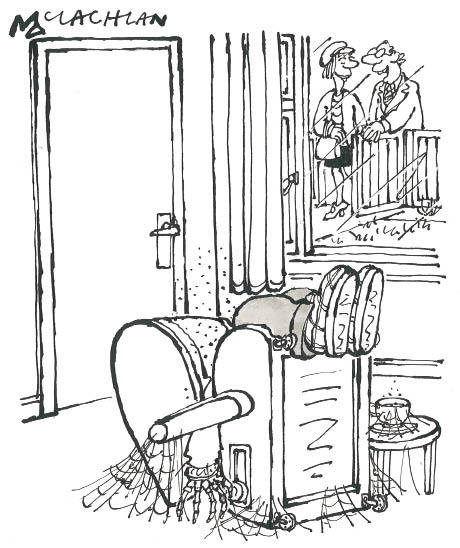Last Friday I popped into Gramex, the world’s best second-hand classical CD and record shop, just behind Waterloo Station.
Last Friday I popped into Gramex, the world’s best second-hand classical CD and record shop, just behind Waterloo Station. The owner took one look at me and declared, ‘This gentleman is tired. He needs a cup of tea and a Belgian bun.’ Before I had time to reply he dashed into the bakery opposite. Two minutes later I sat there, sticky bun in hand, while he put the kettle on.
They wouldn’t do that in HMV. Actually, I suspect they won’t be doing anything in HMV by this time next year. One of its Oxford Street stores has closed; the other contains the only proper classical music department in the capital and — no offence — it has the smell of death about it.
When it’s gone, London will be like New York, devoid of a single big classical record store. The soundproofed showrooms where music lovers once queued to pay £16.99 for a recital by DG’s latest Wunderkind will be stuffed with cut-price lingerie. If you want anything remotely obscure you’ll have to wade into the cosy clutter of a second-hand shop, where the typical customer sounds like Peter Cook’s E.L. Wisty presenting Building a Library. (‘So I said to him, Callas would turn in her grave if she could hear what that EMI remastering does to her middle register, but would he listen?’)
There are perhaps a dozen specialist classical CD shops left in Britain. Many of them sell new CDs as well as LPs; most have a jazz section as well. Lots have closed in recent years — Brighton’s Classical Longplayer was a particular loss — but London still has three old-established stores. It will be interesting to see what happens when HMV goes under. Will they pick up extra business? It’s difficult to say, because their ecosystems are incredibly delicate. A grumpy new assistant or a slight hike in prices can empty the place almost overnight: we anoraks are touchy folk. Anyway, for what it’s worth, here’s my guide to those three London shops.
First, Harold Moores in Great Marlborough Street, Soho. With its Dickensian shopfront and wide range of stock, this should be a much-loved London institution. It isn’t. Since it changed hands, you no longer encounter Chinese restaurant levels of rudeness from the staff, but the prices are still way, way too high. Some CDs cost more second-hand than they do new.
Much more fun, until recently, was the Classical Record Exchange in Notting Hill Gate. This is a sad story. Five years ago, the place was so friendly that it felt like stepping into an episode of Cheers: everyone knew your name. It’s true that relations between the staff could be a bit strained — unsurprising, when you consider that the deputy manager was the gay ex-husband of the manager’s bisexual girlfriend. But we punters were happy, because we’d found a safe place to drone on about different editions of Bruckner symphonies.
Then disaster struck. The staff disappeared in a mysterious purge, to be replaced by a new manager who plays hour after hour of 1930s dance music. These days the stock is meagre, messy and almost as overpriced as Harold Moores’s. This is a shop that’s lost the plot.
Thank God, then, for Gramex in Lower Marsh. Dear old Roger Hewland has been selling books and records since 1947. He knows that his best customers are obsessive-compulsive types, so he piles a thousand unsorted CDs on the centre table, forcing us to search feverishly for things we never knew we wanted, such as Mozart’s Requiem in an 1802 arrangement for string quartet. (A real find, actually, recorded by the Quatuor Debussy on Decca.) He provides leather armchairs, a loo and a stereo with headphones so we can test-drive the CDs, which we can borrow and bring back if we can’t make up our minds. He rarely charges more than a fiver even for recent full-price releases. He announces impromptu discounts: ‘Twenty per cent off today! No arguing!’
How does he make a profit? We regulars sometimes shake our heads at Roger’s generous ways — but then, walking back to the Tube station, I realise that I’ve just spent 70 quid when I only meant to spend ten. Damn. That was an expensive bun. But I’ll be back next week.







Comments